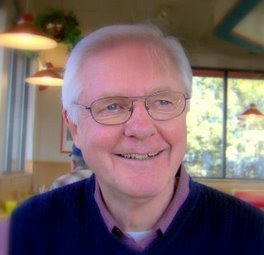 Williams, our"new" teenage granddaughter.
Williams, our"new" teenage granddaughter.Question: "What does the Bible say about how to find purpose in life?" As I interpret Scripture, our purpose in life, as God originally created man, is 1) glorify God and enjoy fellowship with Him, 2) have good relationships with others, 3) work, and 4) have dominion over the earth.
But with man's fall into sin, fellowship with God is broken, relationships with others are strained, work seems at times to be frustrating, and man struggles to maintain any semblance of dominion over nature. Only by restoring fellowship with God, through faith in Jesus Christ, can purpose in life be rediscovered.
In summary, the purpose of man is to glorify God and enjoy Him forever. We glorify God by fearing and obeying Him and knowing Him intimately. We enjoy God by following His purpose for our lives, which enables us to experience true and lasting joy—the abundant life that He desires for us, plus keeping our eyes on our future home in heaven,
I like what Os Hillman writes regarding our topic. He begins with Psa. 139:1-4
"O LORD, you have searched me and you know me. You know when I sit and when I rise; you perceive my thoughts from afar. You discern my going out and my lying down; you are familiar with all my ways. Before a word is on my tongue you know it completely, O LORD" (Ps 139:1-4).
“Your purpose in life is chosen by God. It is not negotiable. It is like calling water wet-there is no changing that fact, and there's no changing God's purpose for your life. While you may not fulfill the purpose for which you were made, you still have a purpose that God intends for you to fulfill. This is your blueprint from God. In the same way that He had a specific purpose in mind for Jesus when He sent Him to the earth, He has a specific purpose in mind for your life.
“This doesn't mean, however, that there is one highly specific niche for you to fill and that if you miss it, too bad. It is my belief that you can achieve your purpose in many different and creative ways. This should take the pressure off. You won't throw your entire life off course by choosing the wrong college, job or mate. God is much bigger than any miscalculation or disobedience on your part. "The Lord will fulfill his purpose for me" (Ps. 138:8). Isn't that comforting to know?
“Defining your purpose will help you to determine the activities that you should be involved in. Like Jesus, you should not involve yourself in activities that contradict His purpose for your existence. Jesus’ purpose was to do the will of the Father and become the salvation for mankind.
“Each of us must ask why we are involved in an activity. Is it a God-activity, or just a good activity? Remember, Jesus only did something if He saw the Father doing it, and He was able to see what His Father was doing because of His intimate relationship with Him.
As I close my study on the topic of “what is my purpose in life” at the age of 70 plus, it is to focus on loving God, loving and encouraging others from either a mentoring or friendship setting, teaching at the Lighthouse Mission, building a strong marriage and listening for His whisper, “Ray, THIS is THE Way – walk in it.” This I’ll pursue until God nudges me into another direction.
What is your purpose? “Without a vision (purpose), the people perish.”










